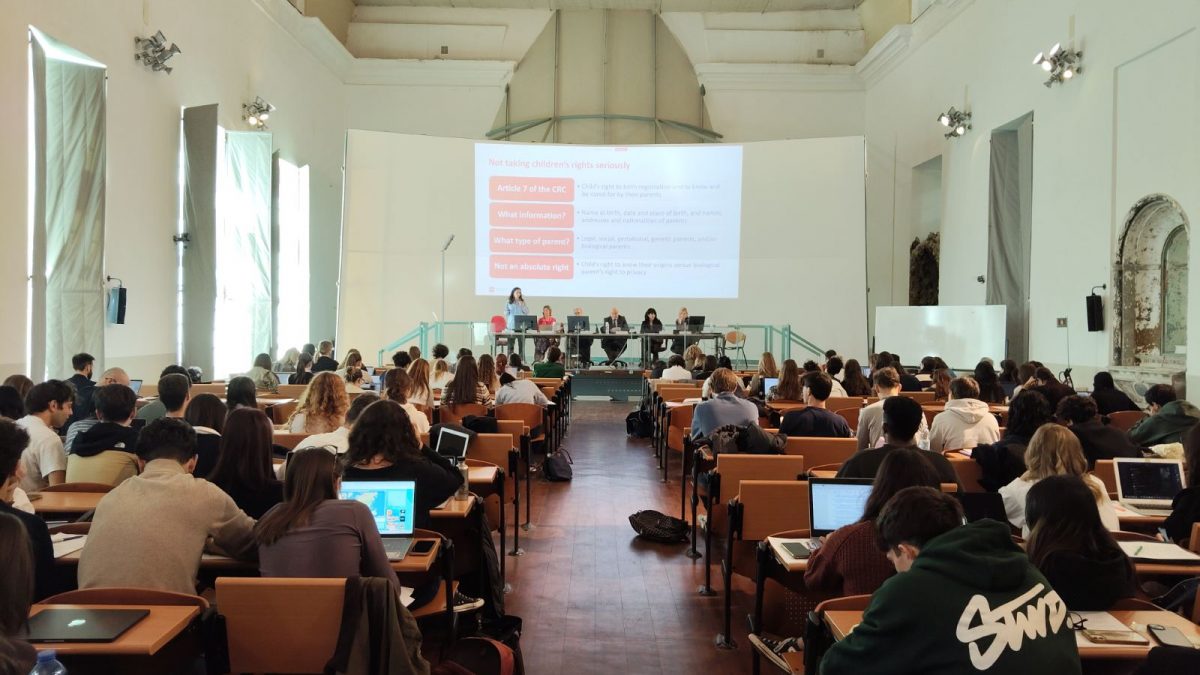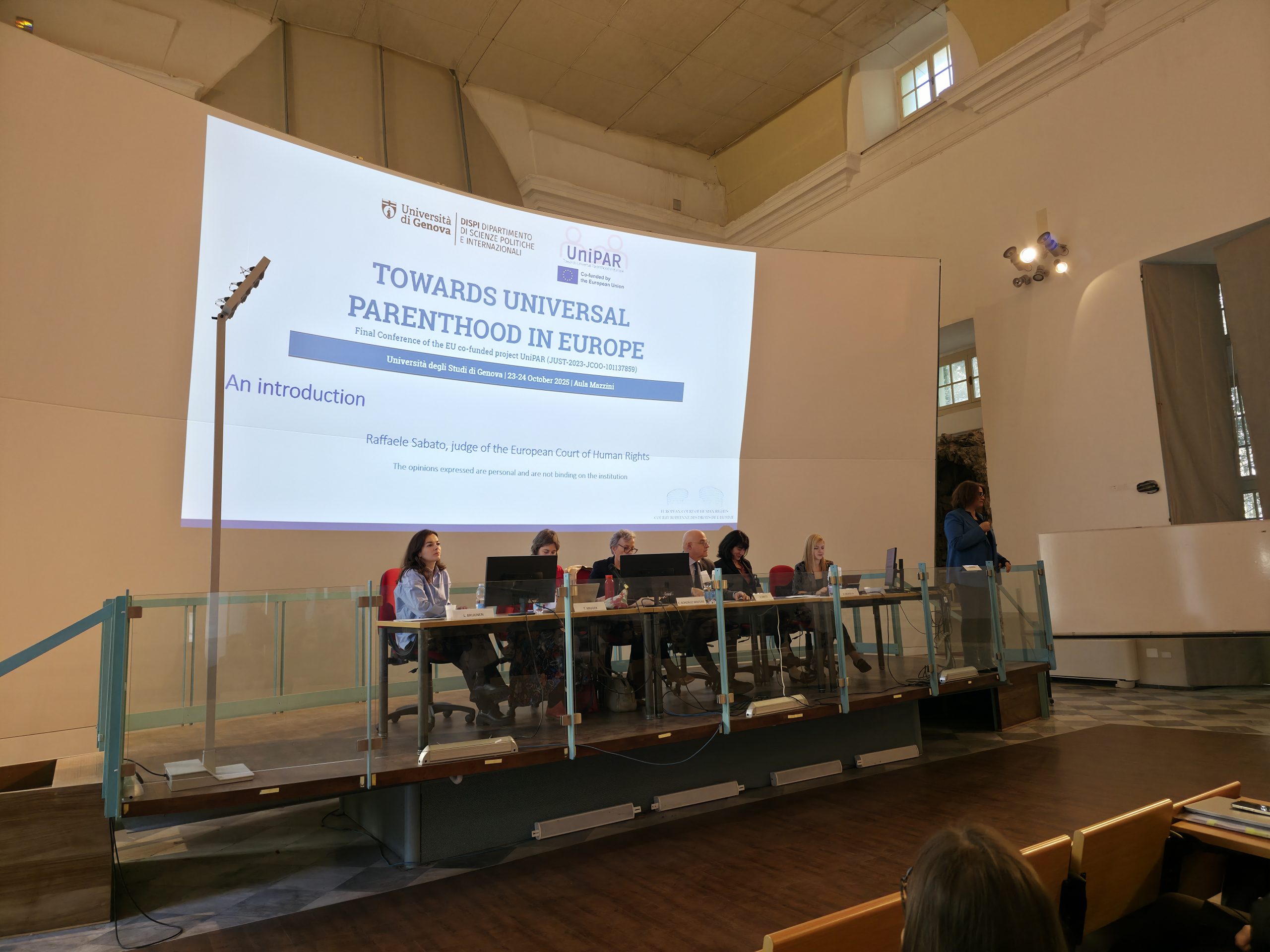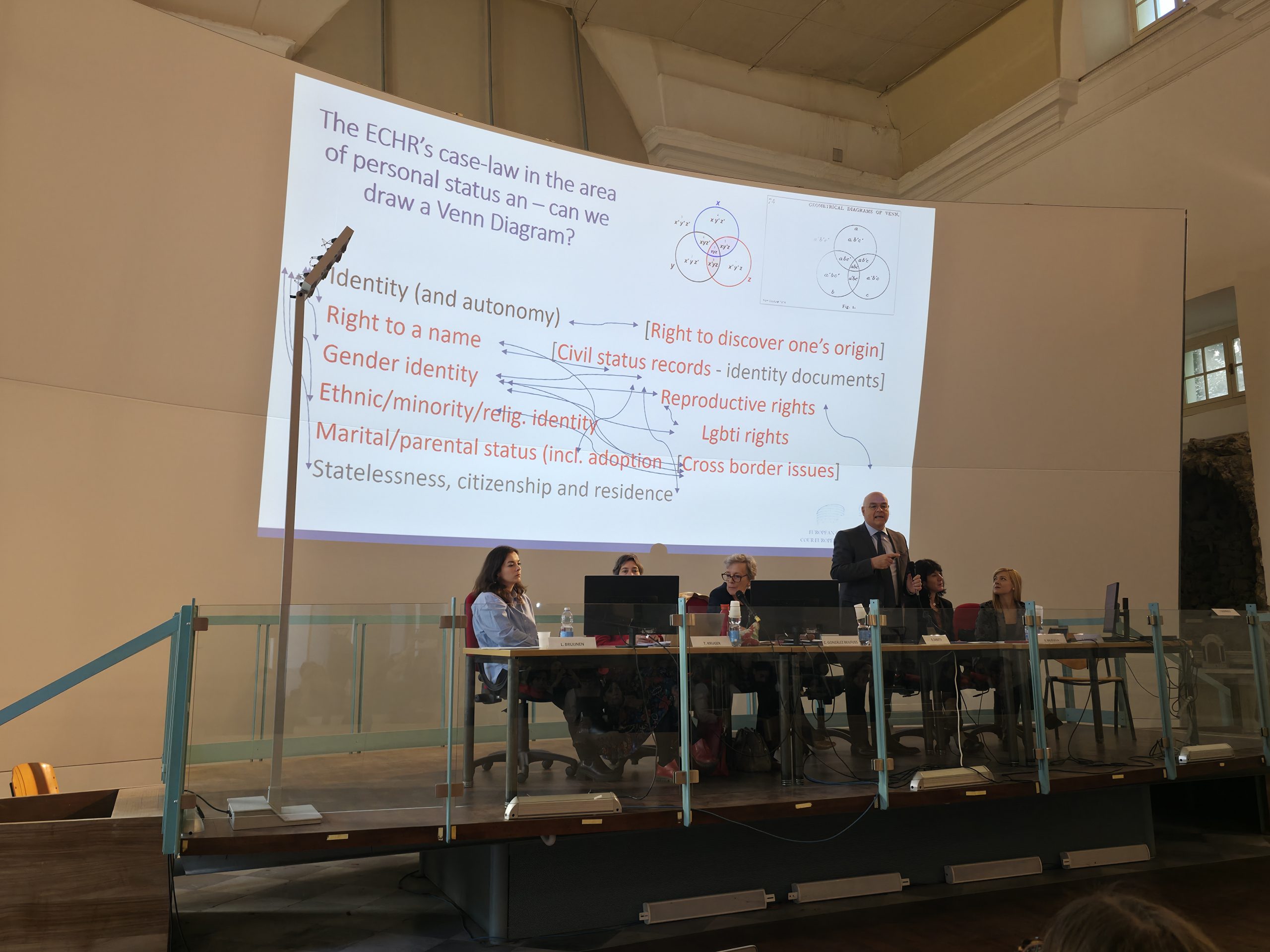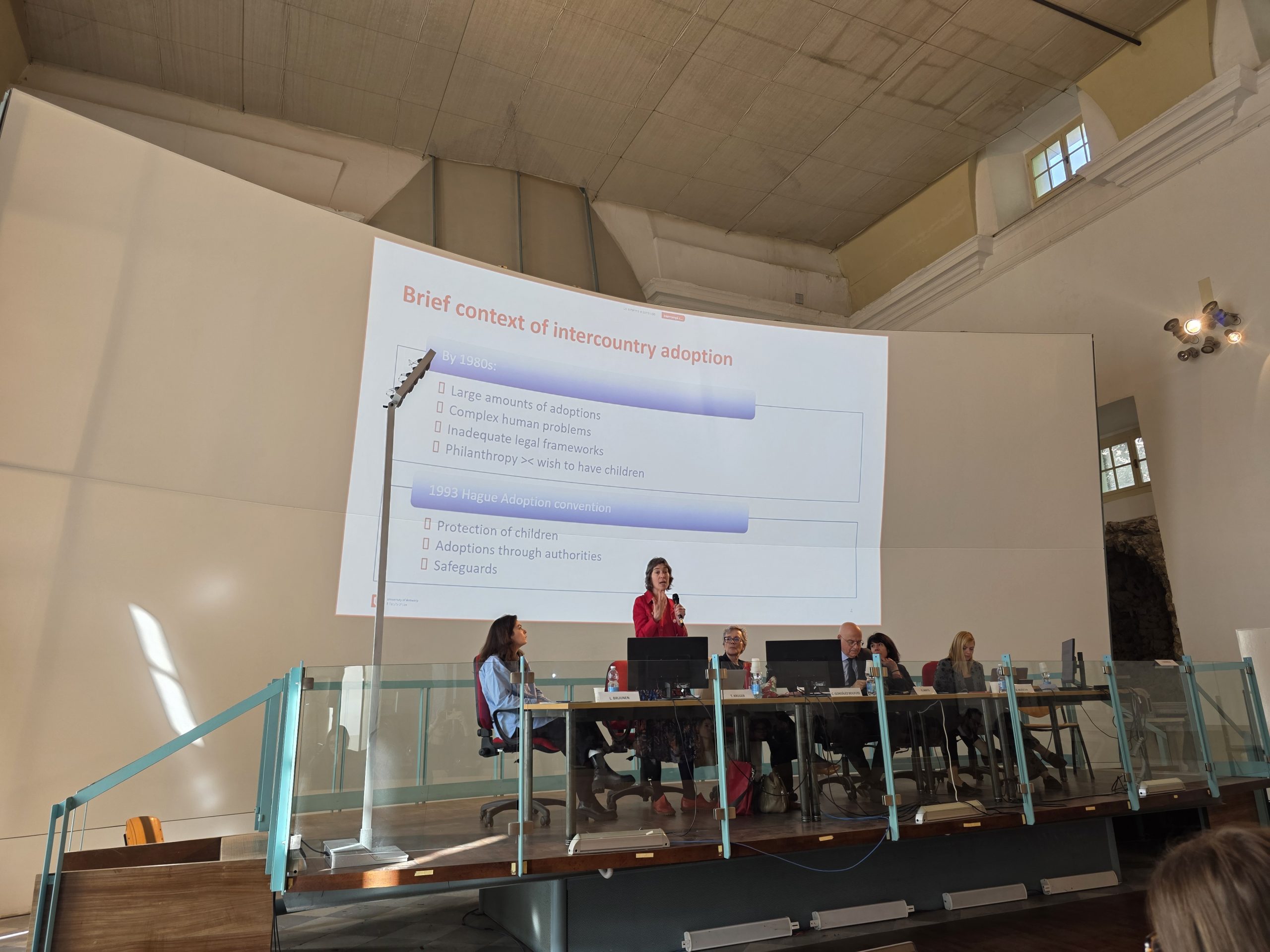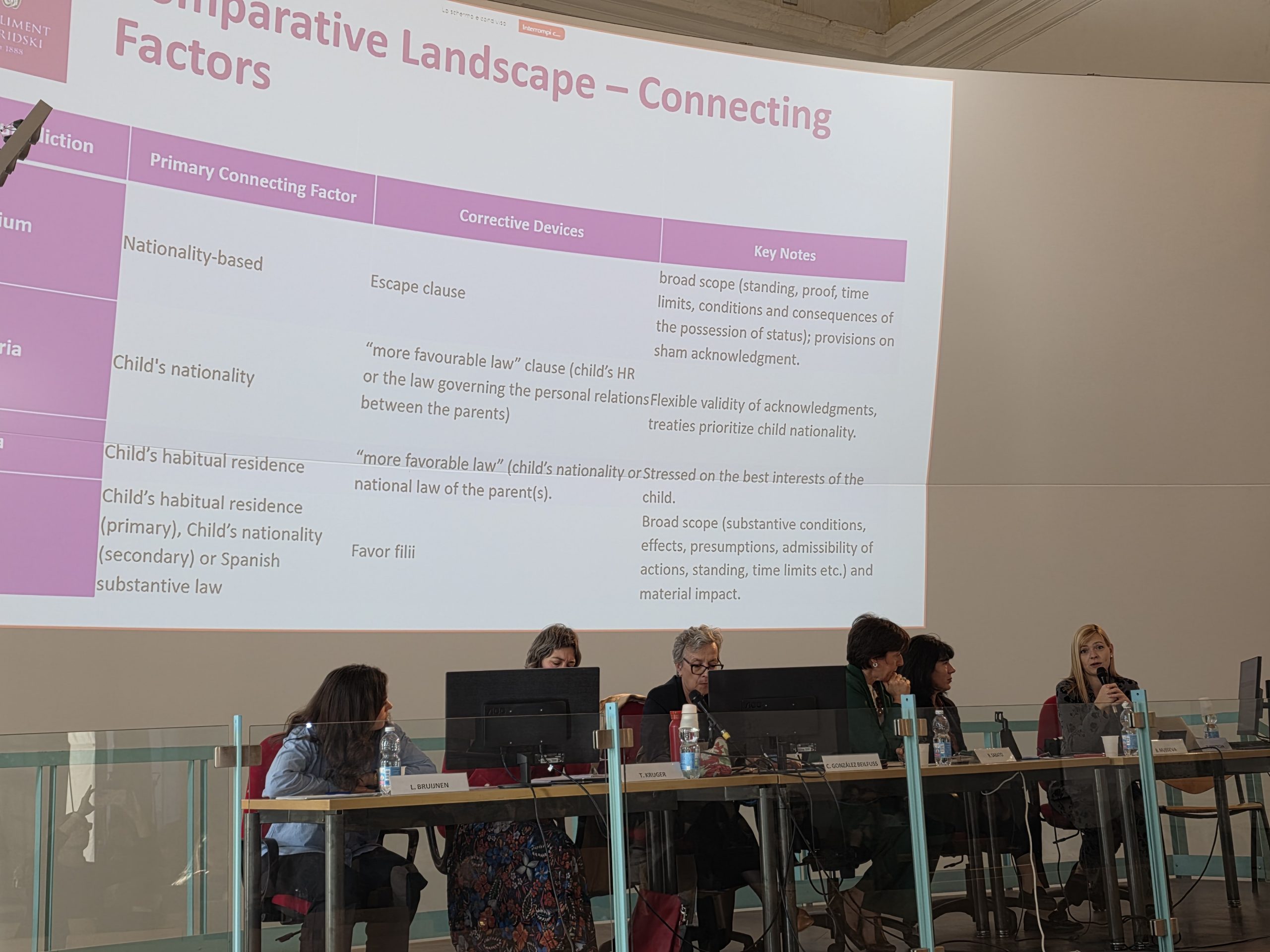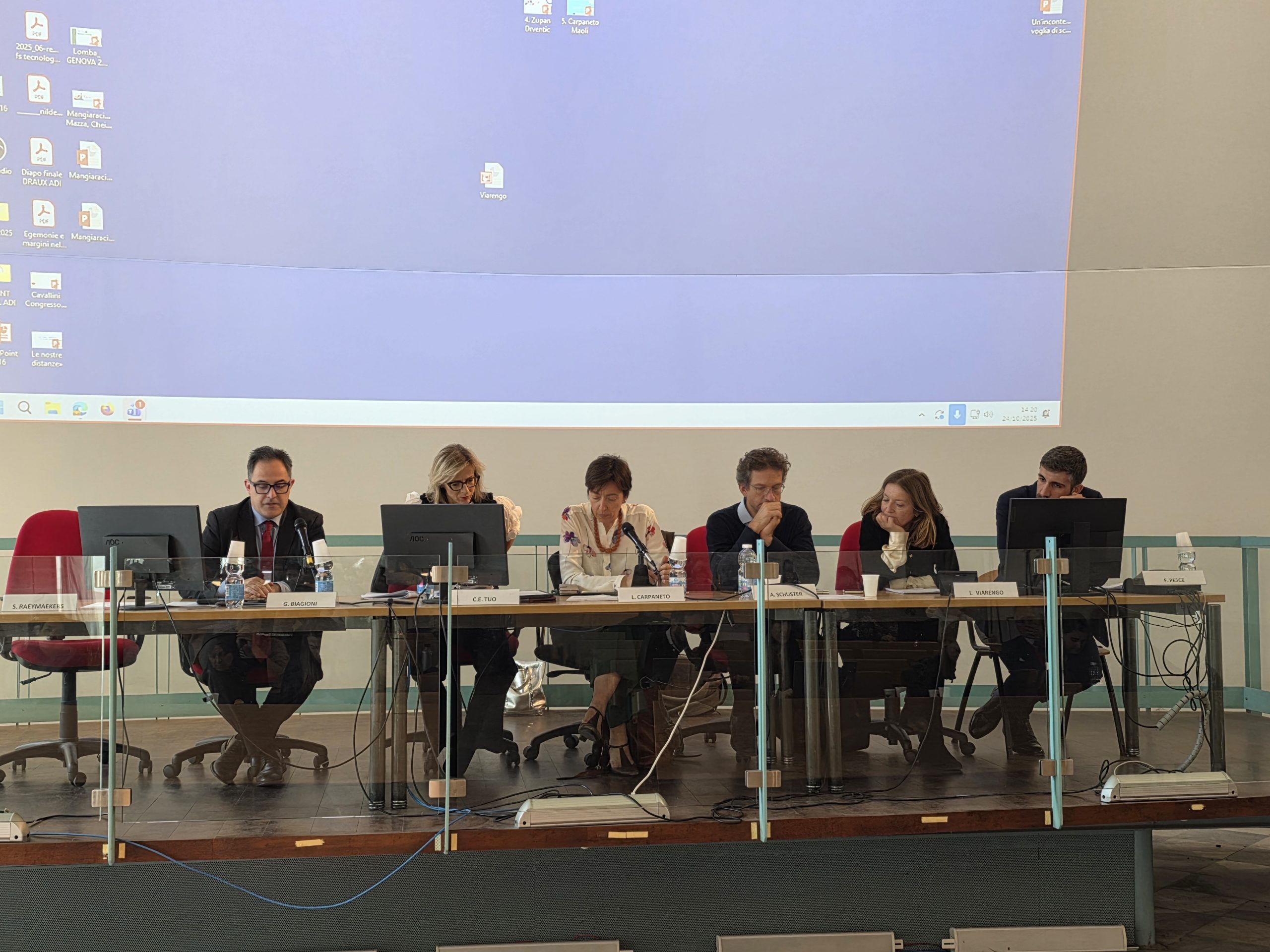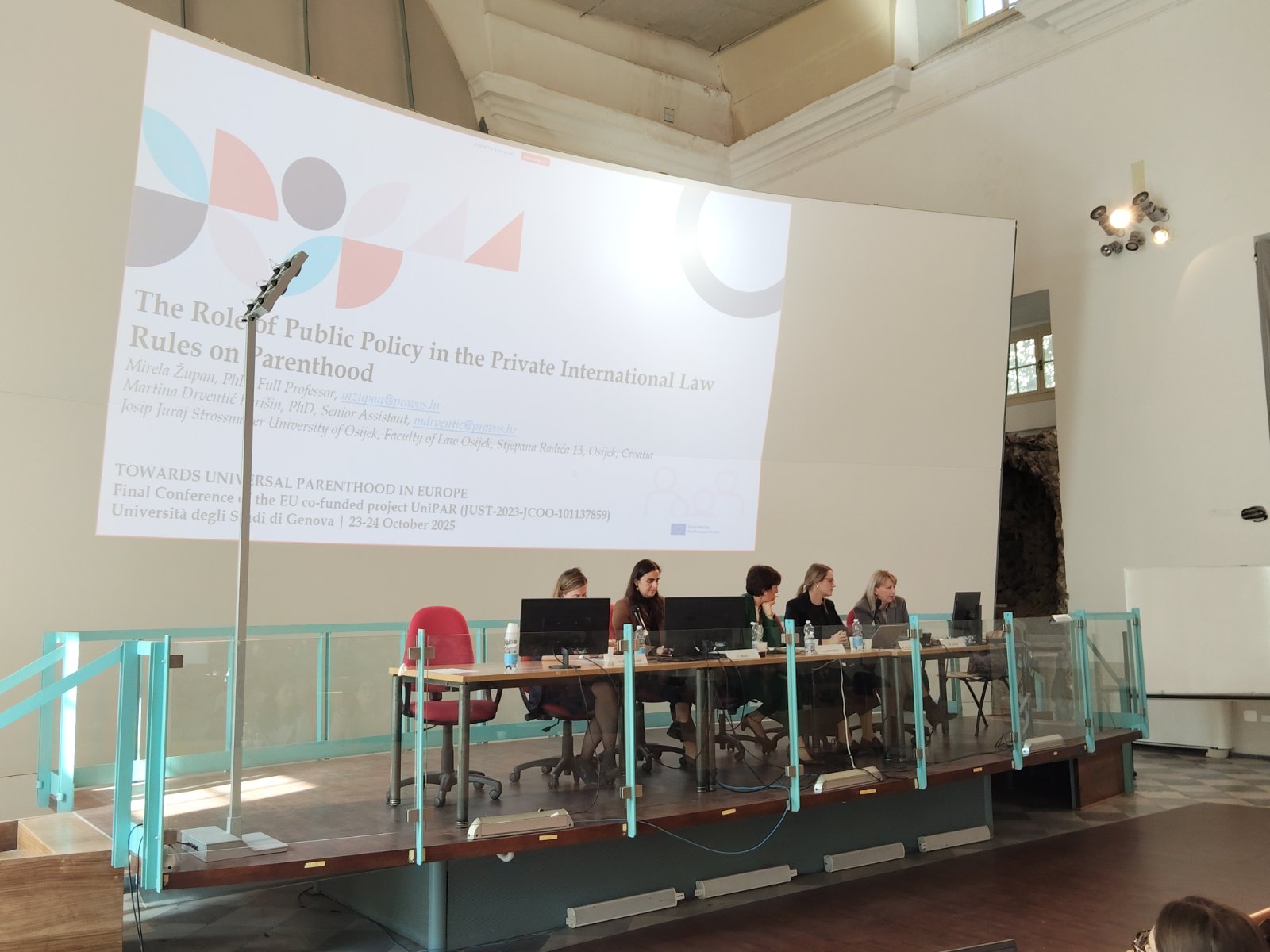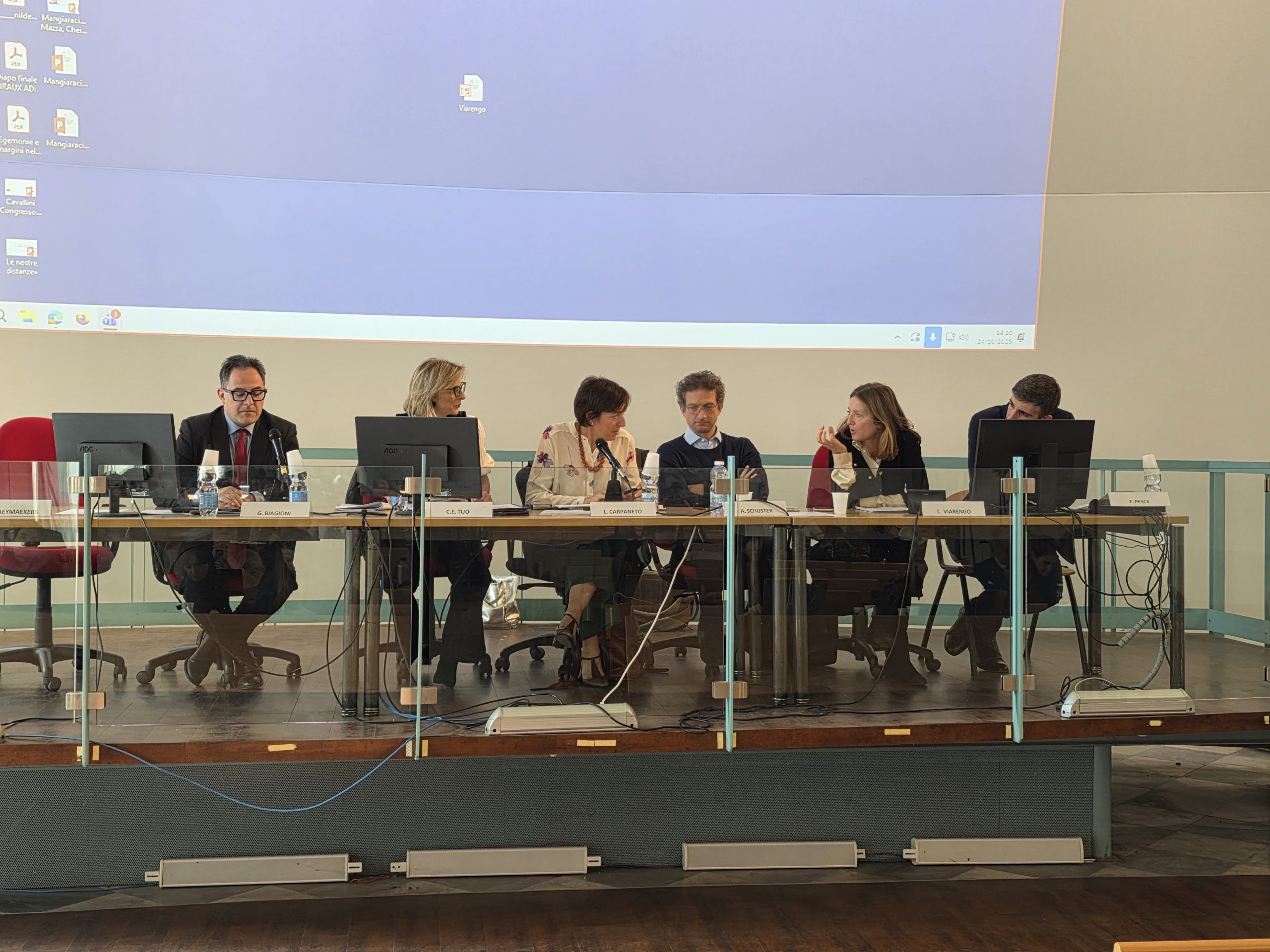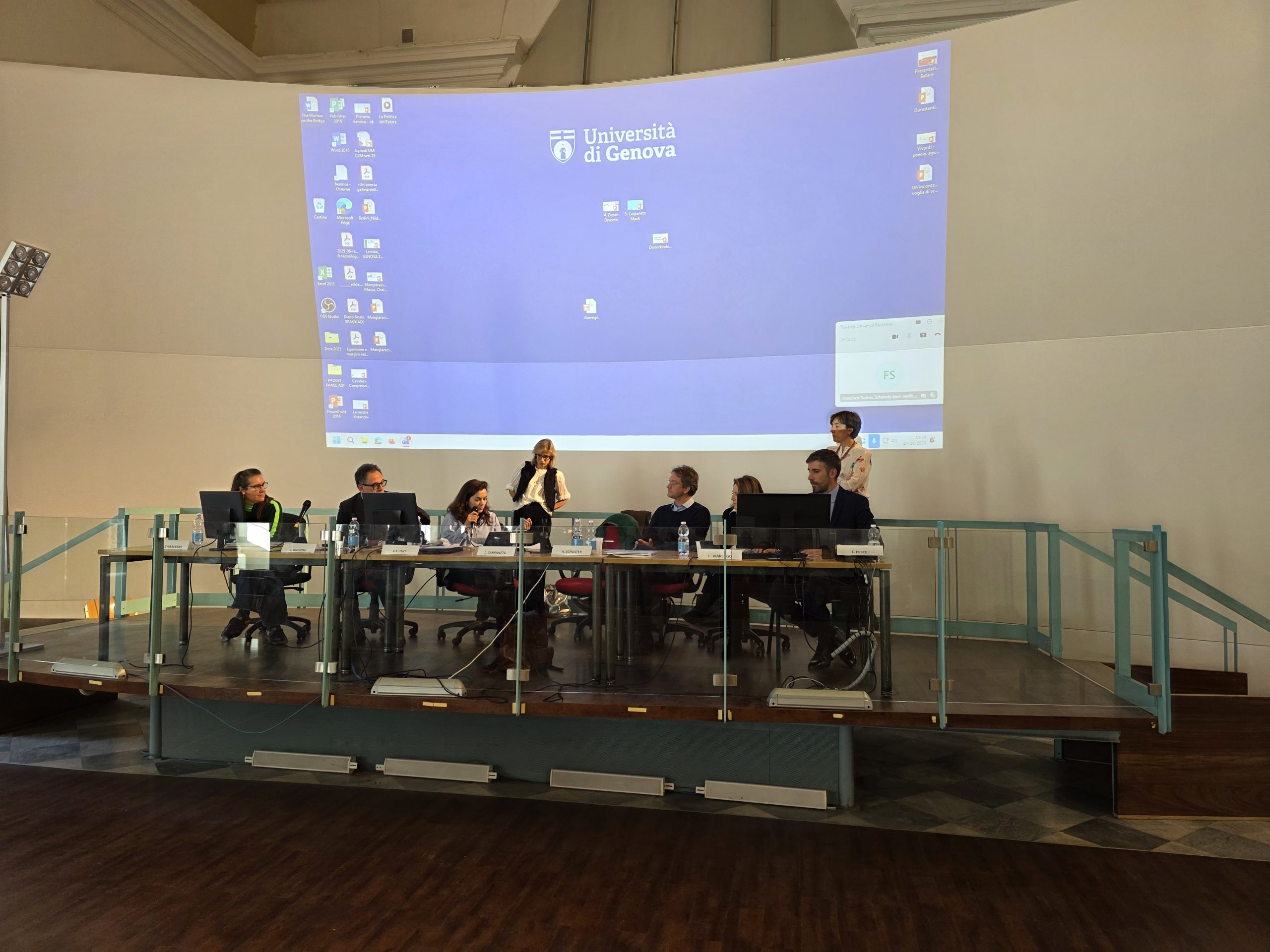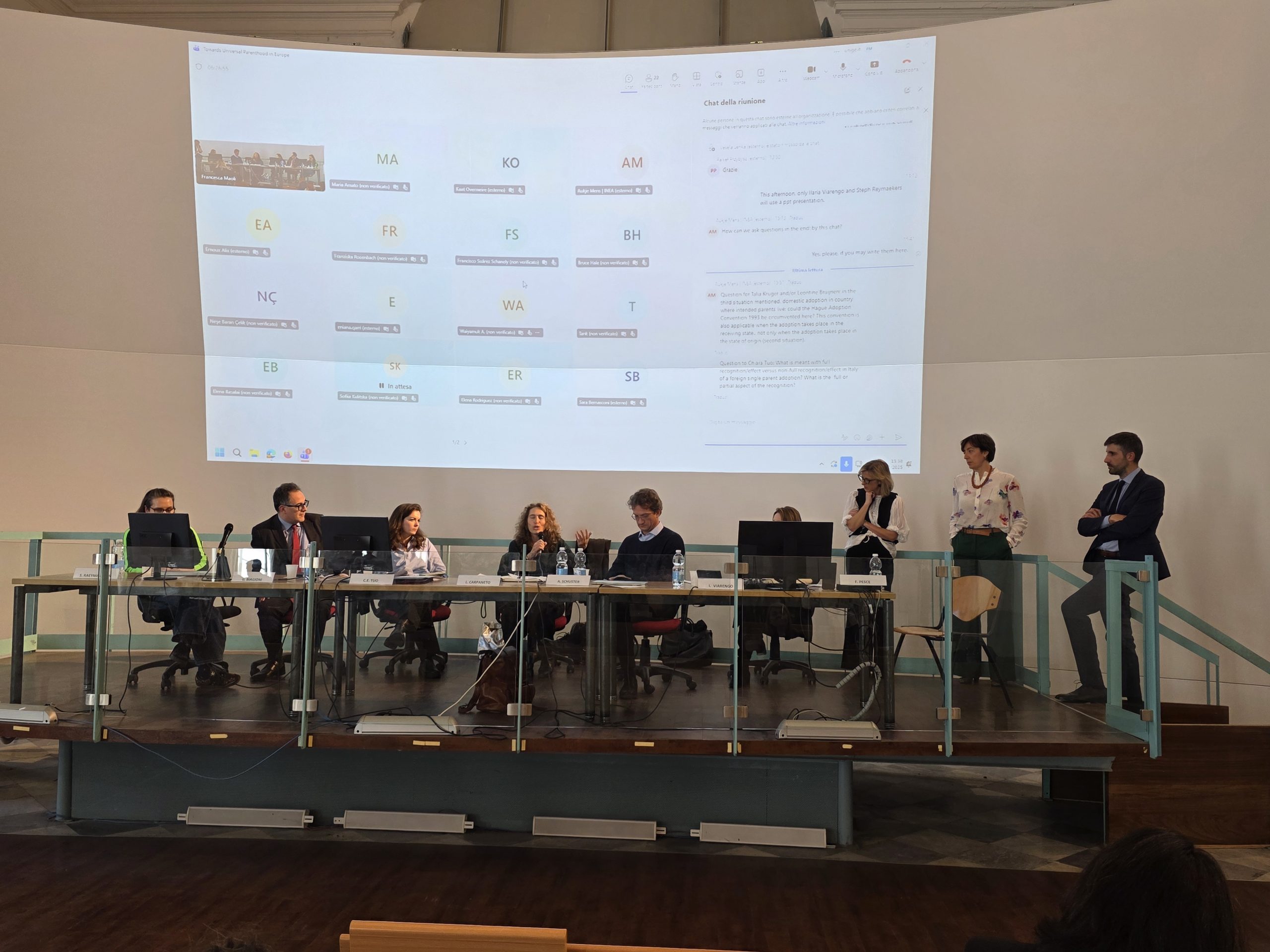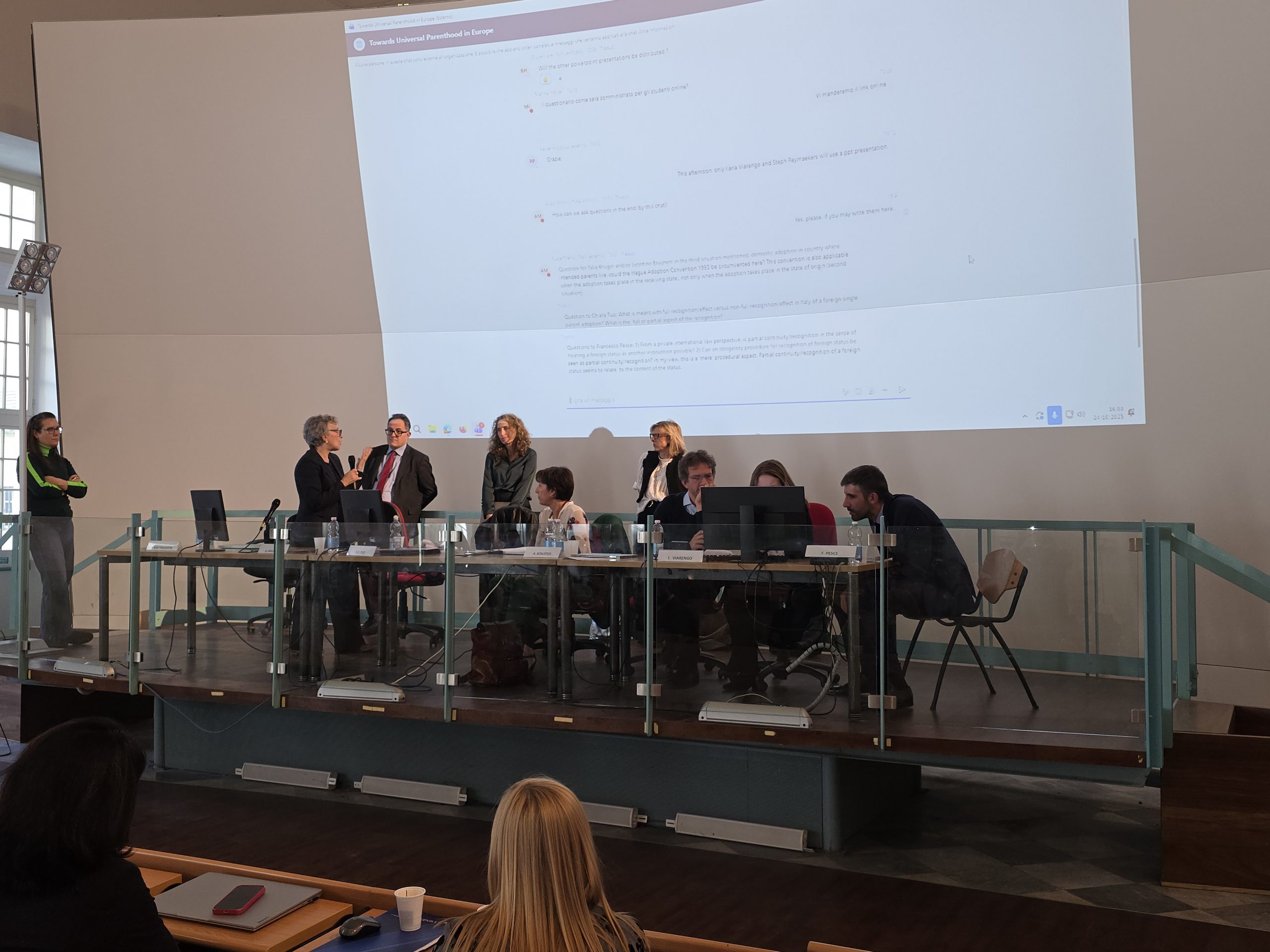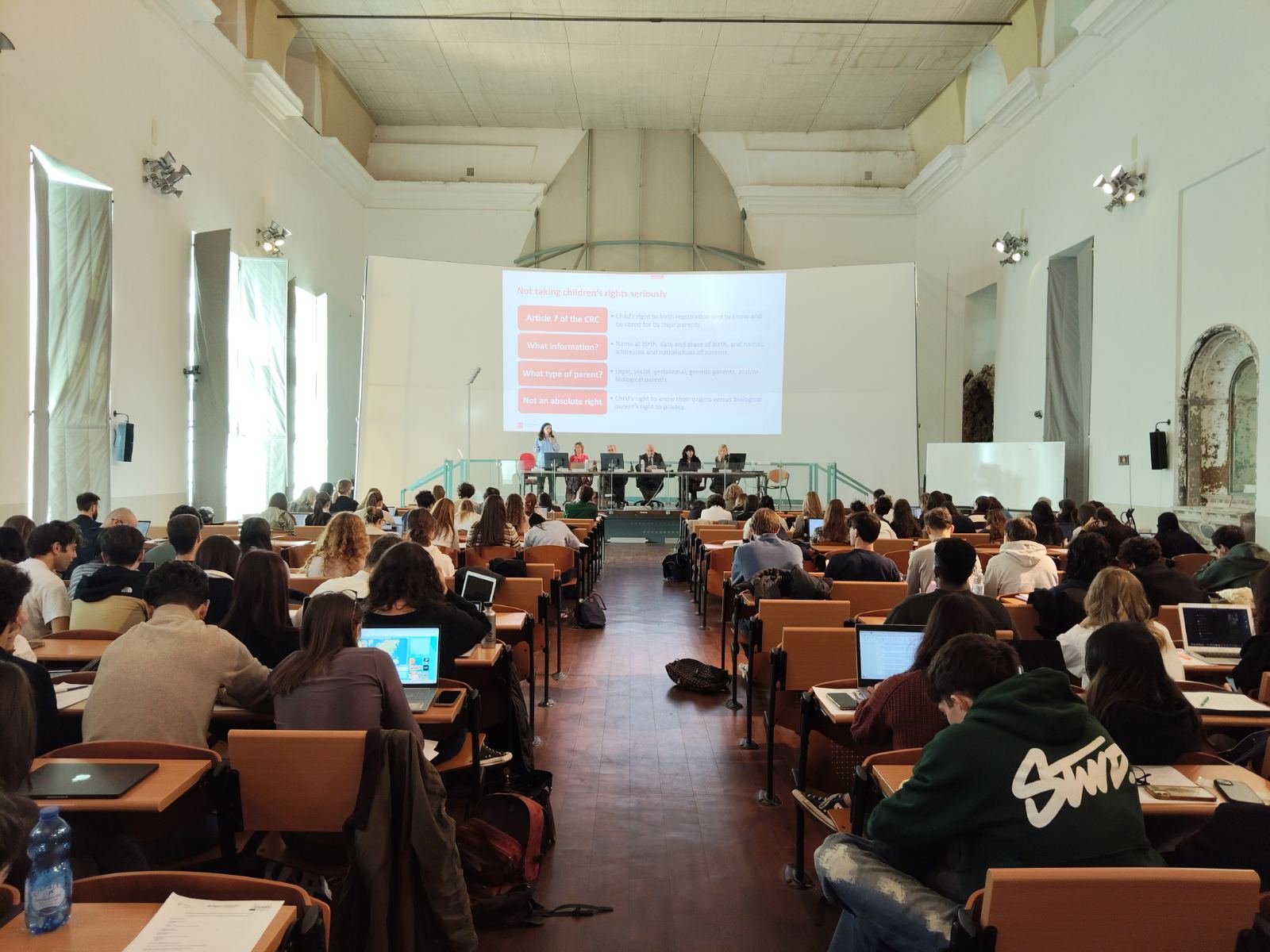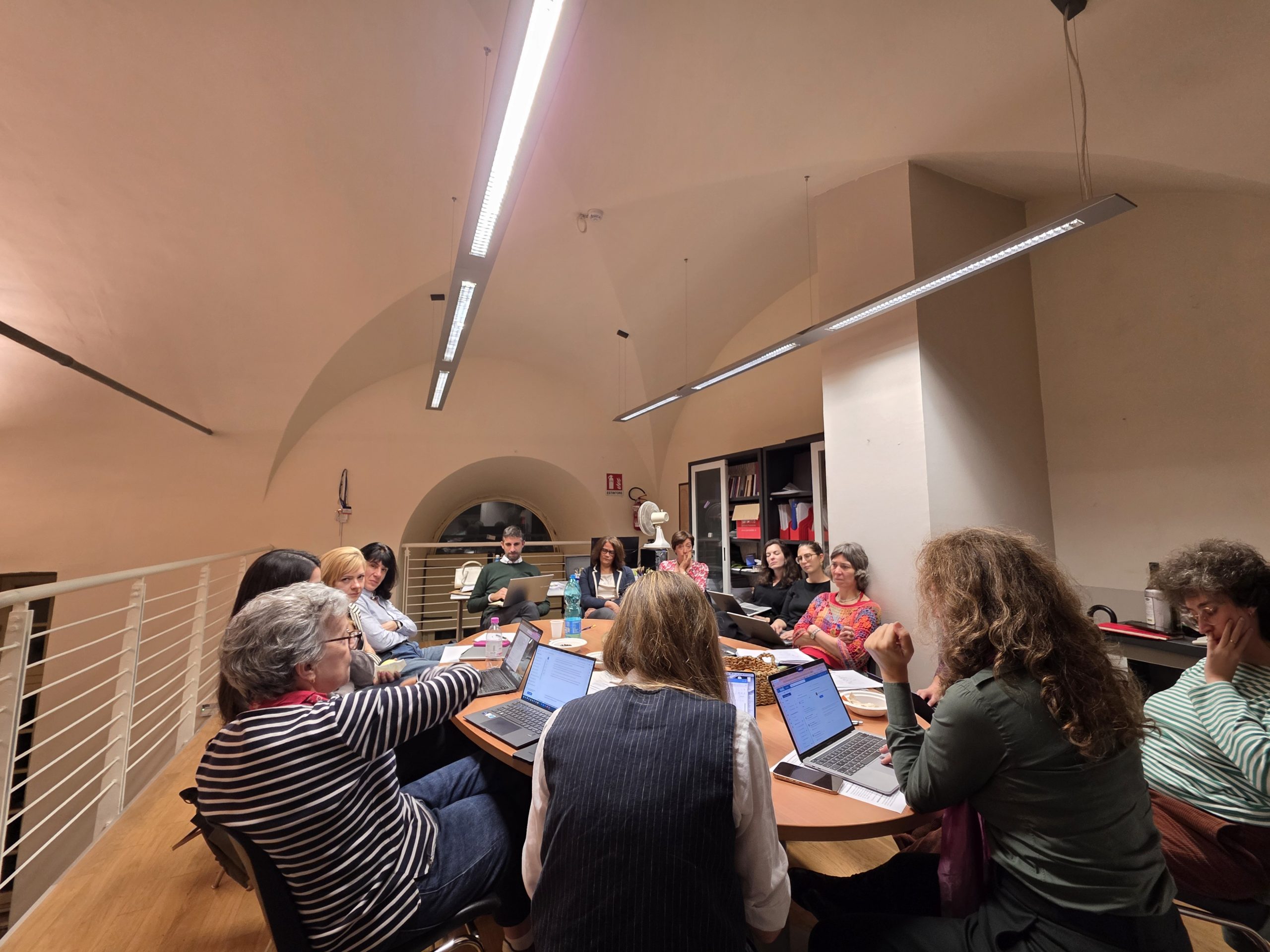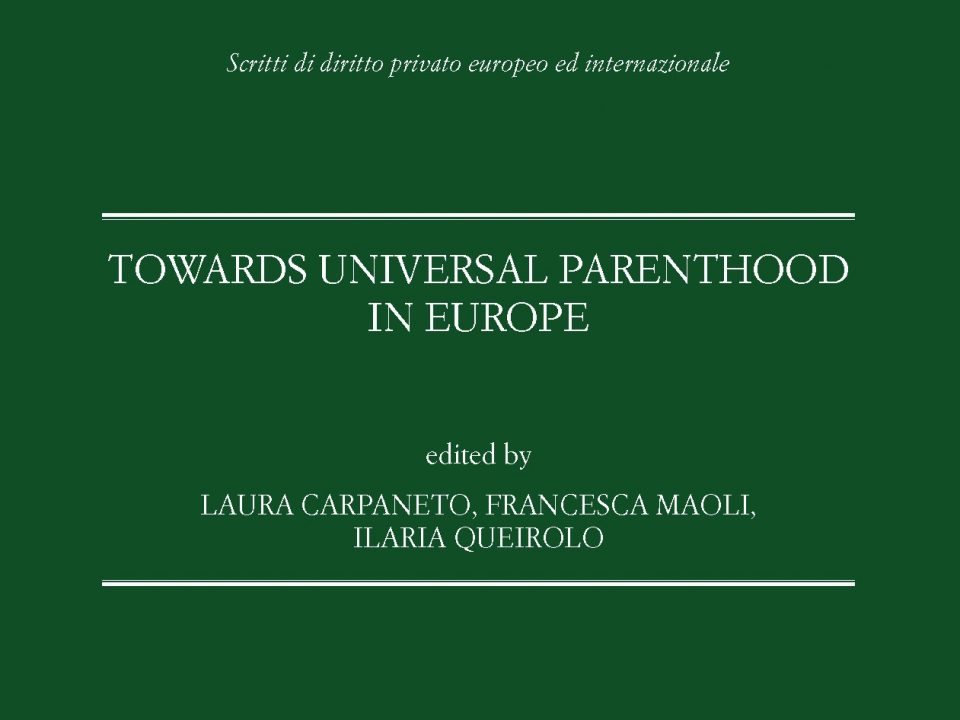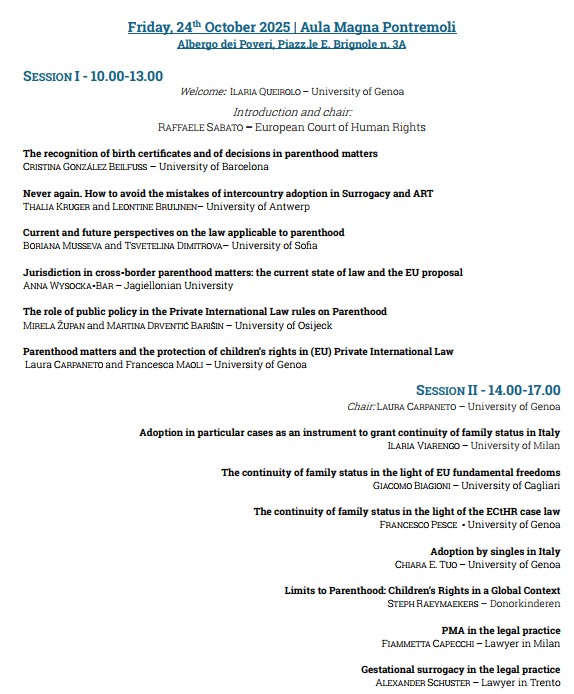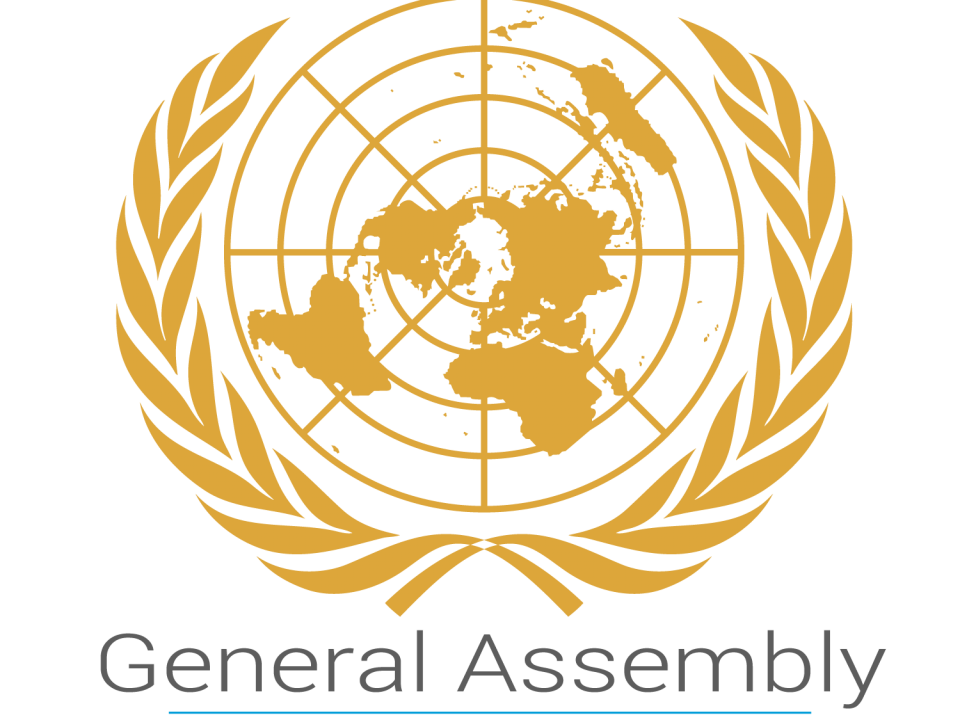The Final Conference of the UniPAR Project: Towards Universal Parenthood in Europe
University of Genoa, 24 October 2025
The Final International Conference of the UniPAR project has been organized by the University of Genoa (UNIGE), with the objective of present the Project’s results and incorporate perspectives from other jurisdictions and disciplines. It took place in Genoa on 24th October 2025 and it was preceded by the Final Steering Committee meeting of the project on 23rd October 2025.
The Conference gathered professionals in the field of family law and private international law to engage in a discussion aimed at identifying the open issues surrounding parenthood. The presentations and discussions surrounding them enabled not only to present the main results of the UniPAR project – especially in the morning session – but enabled to gain other perspectives as it was the objective of the event.
The opening keynote speech of dr. Raffaele Sabato provided a detailed and comprehensive analysis of the case law of the European Court of Human Rights and how the latter effectively impacted the regional legal system. Dr. Sabato also provided a projective analysis on the possible future evolution and impact of the Court’s case law as concerns parenthood.
The presentation of prof. Gonzalez Beilfuss focused on the issue of recognition of decisions and birth certificates. Prof. Beilfuss highlighted that judgments on filiation are exceptional (they occur because paternity was contested or needs to be stablished or even terminated; or because we have adoption or ART related-mostly constitutive). In cross-border situations, we clearly only have the need for recognition (i.e. entry or update of an entry in a Register, or in the course of proceedings where parenthood issues are preliminary), not enforcement. According to the current situation, exequatur is required in some States in particular when there are objection against recognition. Foreign birth certificates, on their side, do not establish parenthood, they have evidentiary value. The PIL issues surrounding them concern their nature of public document, for which indeed there could be methodological questions only as concerns their content. In fact, as concerns, the document itself, we have regulation 2016/1191. The methodological question therefore concerns the alternative between recognition or conflict of laws. The parenthood proposal makes a distinction between authentic instruments with or without binding effects. This distinction could be re-evaluated.
Prof. Thalia Kruger and dr. Leonine Bruijnen focused on an analysis of the main issues surrounding surrogacy and ART, explaining how we should avoid the mistakes made with intercountry adoption.
Prof. Wysocka-Bar focused on the rules on jurisdiction as concerns parenthood matters, preliminarily examining the domestic rules provided by Member States’ law. Grounds of jurisdiction are usually based on personal connecting factors. If a time factor is stated in the provision, it usually points out to the moment when the proceedings were initiated. Currently, there are very different solutions in Member States. Prof. Wysocka also highlighted the important role that bilateral agreements play, especially for some Member States like Poland.
The presentation of prof. Zupan and dr. Drventic Barisin concerned the role of public policy, with a focus on parenthood arising from surrogacy.
Lastly, the presentation of prof. Laura Carpaneto and Francesca Maoli was centred upon the children’s rights implication of surrogacy.
The second session welcomed the presentations of the external speakers, alongside two presentations by professors of the University of Genoa. The presentation of prof. Ilaria Viarengo focused on adoption in particupar cases, an institute that in Italy plays a pivotal role in the context of recognition of parenthood, especially when arising from surrogacy or ART. As we know, adoption serves the objective of giving a family to a child. Adoption in particular cases serves a slight different objective: in Italy, it applies to cases in which the adoptive parents do not meet the requirements for full adoption under Italian law. Prof. Viarengo explained the many differences occurring between adoption and adoption in particular cases and focused on the decision of the Italian Constitutional Court of 22 May 2025, No. 68, which highlighted the structural inadequacy of the adoption in special cases. In the recent decision X c. Italy, on the other hand, the court stated that “an adoption procedure could meet this requirement [of having an effective mechanism, ndr]”, provided that full equivalence with article 8 ECHR is not provided.
Prof. Giacomo Biagioni, in his presentation, highlighted the relationship existing between the continuity of family status and EU fundamental freedoms, observing how the ECJ adopted a cautious approach in Coman and Pancharevo. In Pancharevo in particular, the ECJ – probably aware of the political sensitivity of the topic – adhered to a strict interpretation of the principle of mutual recognition for the purposes of freedom of movement.
Alexander Schuster, lawyer in Trento, brought some critical insights concerning the legal practice surrounding surrogacy cases in Italy. The central thesis is that surrogacy can be in line with ethical values. Of course, there are many sides of surrogacy, which may in some cases even be considered exploitation.
The presentation of prof. Chiara Enrica Tuo was focused on adoption by single persons. In normal cases, the general principle in Italian law is that single persons are not considered suitable for adoption. There are, however, particular cases.
Steph Reymaekers from Donorkinderen delivered a presentation of a different kind, based not on the legal analysis of the legal framework, but on the work of the NGO Donorkinderen, which promotes the right to identity of donor conceived children.
Lastly, the presentation of prof. Francesco Pesce focused on the continuity of family status in the light of the ECtHR case law. The question was whether the ECtHR case law indeed adheres to the principle of continuity of family status. To a certain extent, it does: there are many cases in which the issue of continuity is at stake. The matter can be analyzed both from the horizontal perspective of marriage and the vertical perspective of parenthood.
At the end of the second session, a full hour was dedicated to a lively discussion, with a lot of questions from the audience.

